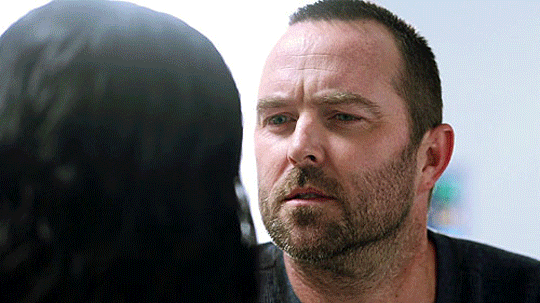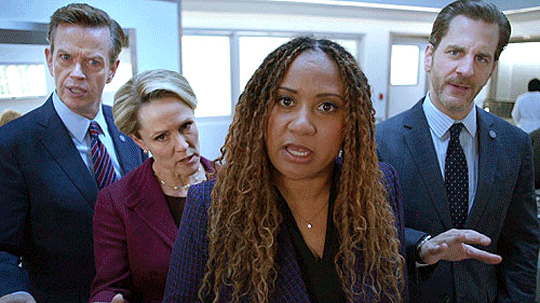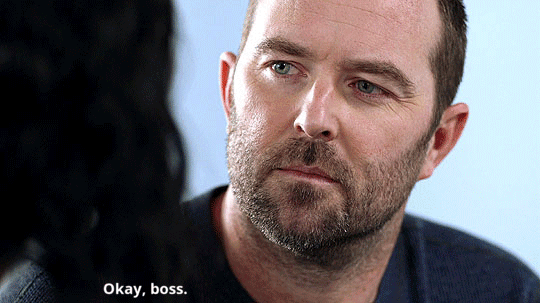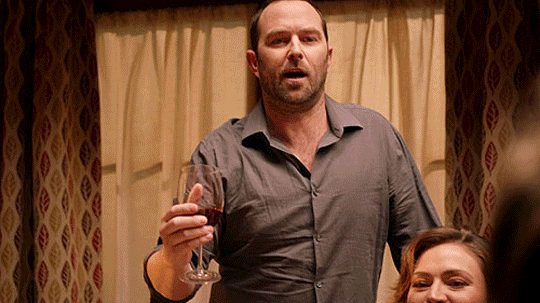#Director Grigoryan
Explore tagged Tumblr posts
Text








Kurt Weller in Blindspot Season 5 #11
(Blindspot Season 5, Episode 11 - Iunne Ennui)
#Blindspot#Sullivan Stapleton#Kurt Weller#Jaimie Alexander#Jeller#Director Grigoryan#Tracie Thoms#Ashley Johnson#Patterson#Audrey Esparza#Ennis Esmer#Blindspot gifs#Take2-BS5-11#Blindspot re-watch 2024
20 notes
·
View notes
Text
Nagorno-Karabakh’s Parliament has elected Samvel Shahramanyan as the region’s new president. Officials have expressed hope that he will be able to achieve a ‘breakthrough’ in the region’s negotiations with Azerbaijan, which has held Nagorno-Karabakh under blockade for over nine months.
Sharhamanyan was elected in an extraordinary session on Saturday.
According to CivilNet, 23 members of parliament took part in the voting, with 22 voting for Shahramanyan and one against.
Four out of five factions of Nagorno-Karabakh’s parliament on Wednesday nominated Samvel Shahramanyan for the post of president. He was appointed to the position of State Minister a day before Arayik Harutyunyan’s resignation from the post of president.
An application by the United Motherland parliamentary faction to nominate Samvel Babayan, the faction’s leader, was rejected on the grounds that Babayan had not permanently lived in Nagorno-Karabakh for the past ten years, a requirement for presidential candidates. Speaking to RFE/RL on Monday, Babayan stated that his parliamentary faction would not participate in the vote, instead holding a protest against the ‘predetermined’ election in Stepanakert.
However, the votes of the remaining four factions were enough to elect Shahramanyan, as the constitution of Nagorno-Karabakh requires the votes of two thirds of MPs to elect a president.
Who is Samvel Shahramanyan?
Samvel Shahramanyan, 44, is believed to be close friends with Bako Sahakyan, the third president of Nagorno-Karabakh. In 2018, during his presidency, Sahakyan appointed Shahramanyan as director of the National Security Service.
Shortly after Arayik Harutyunyan was elected president in 2020, Shahramanyan was appointed head of the newly-created Ministry of Military Patriotism, Youth, Sports, and Tourism. In January 2023, Shahramanyan was appointed secretary of Nagorno-Karabakh’s Security Council, and was amongst those participating in meetings between representatives of Nagorno-Karabakh, Azerbaijan, and Russian peacekeepers on 1 March.
A number of MPs have stated their belief that Shahramanyan can bring together opposing groups in society, and could potentially bring about a ‘breakthrough’ in the ongoing blockade, having previously engaged in discussion with Azerbaijan. Nagorno-Karabakh has been under blockade by Azerbaijan since December 2022, with international and local groups increasingly warning that the region is experiencing an acute humanitarian crisis.
[Read more: ‘Bread is all we have’: Nagorno-Karabakh’s population faces threat of starvation]
Political analyst Tigran Grigoryan told CivilNet that Shahramanyan would not be independent, instead representing a political group consolidated by Ruben Vardanyan, the billionaire former State Minister. Harutyunyan’s resignation came soon after former state minister Ruben Vardanyan demanded he step down.
‘Now the decision-making process will take on a more collective nature’, said Grigoryan. ‘Most likely the former presidents, Ruben Vardanyan and their entourage will rule the country through a joint decision-making process.’
Reasons for Harutyunyan’s resignation
Arayik Harutyunyan resigned on 1 September, a day after firing the region’s second most senior official, State Minister Gurgen Nersisyan. In his statement Harutyunyan suggested that holding on to the post could be an impediment to negotiations with the Azerbaijani government.
Just 10 days before his resignation, Harutyunyan signed into law changes that allowed his successor to be appointed by parliament, rather than through a public election.
The changes state that during martial law, if a president leaves office early then parliament should appoint a replacement to carry out the remainder of their term. Nagorno-Karabakh has been under martial law since the Second Nagorno-Karabakh War, and Haratunyan’s current term was due to end in 2025.
Harutyunan’s resignation has been discussed within the region since the end of the Second Nagorno-Karabakh War, with the president initially promising to resign once the situation had ‘normalised’.
Harutyunyan was also associated with Armenian Prime Minister Nikol Pashinyan, with some opposition members suggesting that Harutyunyan’s departure could remove ‘obligations’ to the Armenian PM. When he was elected, Harutyunyan was seen as being close to the Armenian PM, though their relationship later soured.
2 notes
·
View notes
Photo

New Post has been published on https://massispost.com/2024/05/pm-pashinyan-and-cia-deputy-director-discuss-international-regional-issues/
PM Pashinyan and CIA Deputy Director Discuss International, Regional Issues

YEREVAN — Prime Minister Nikol Pashinyan met with the deputy director of the U.S. Central Intelligence Agency, David Cohen, in Yerevan on Tuesday. In a short statement on the meeting, Pashinyan’s press office said they discussed U.S.-Armenian relations and “issues pertaining to the international agenda.” It did not elaborate. Nor did the office release any photographs of the meeting, in contrast with its usual press releases on Pashinyan’s face-to-face conversations with foreign officials. Cohen also had a meeting with Secretary of Armenian Security Council Armen Grigoryan. CIA Director William Burns paid a surprise visit to Armenia in July 2022. He…
0 notes
Text
Argishti Kyaramyan set to head Armenia's Investigative Committee
New Post has been published on https://armenia.in-the.news/society/argishti-kyaramyan-set-to-head-armenias-investigative-committee-76201-12-07-2021/
Argishti Kyaramyan set to head Armenia's Investigative Committee
July 12, 2021 – 15:56 AMT
PanARMENIAN.Net – Argishti Kyaramyan, who previously served as the Head of the State Control Service of Armenia and Director of the country’s National Security Service, will be named the Chairman of the Investigative Committee.
Karamyan will replace Hayk Grigoryan in the position.
Grigoryan’s dismissal from the post of Chairman of the Investigative Committee and the appointment of Kyaramyan to the position will be on the table at a Cabinet meeting on July 12.
As reported earlier, Kyaramyan was awarded the Medal of Courage “for his contribution to the defense of the homeland during the recent hostilities in Artsakh” (Nagorno-Karabakh).
During his career, 30-year-old Kyaramyan has served as Director of the National Security Service, Head of the State Control Service, Deputy Head of the Investigative Committee, having earlier held positions in the Prosecutor’s Office and the State Revenue Committee.
Read original article here
1 note
·
View note
Video
vimeo
Citymobil - Theatre from Anton Shavkero on Vimeo.
Directors: Anton & Andrey Shavkero Dop: Andrey Krauzov 2nd unit Dop: Vitaly Zaytsev Art direction & Post Production: CLAN Production designer: Alexey Yandovskiy Costume designer: Olga Bobrova 1AD: Igor Rabchun Edit: Alexandr Chuikov Color: Artem Leonov Sound: Monoleak
CLAN: God: Alex Gorin God: Yuriy Adam God: Zinnur Mustafin God: Sergey Frolov
Hype Production: Producer: Michael Novitskiy Executive producer: Ilya Dzhincharadze Post-production producer: Leo Tsoy AP: Andrey Ershov Production manager: Dmitry Dimchevsky & Michael Goglov Cast: Ekaterina Chernetsova & Anna Golenko Location manager: Anastasia Nikiforova Makeup artist: Igor Boyko Sound design: Dmitry Malyshkin
Slava: Creative director: Anna Migaleva Copywriter: Roman Vydashenko Art director: Liudmila Kulibaba Account director: Daria Shnipko Head of TV: Asya Grigoryan
Citymobil: Директор департамента по маркетингу и развитию: Лена Доброхотова Руководитель группы по управлению коммуникациями: Ира Трофименко Менеджер по маркетинговым коммуникациям: Настя Еремеева Руководитель отдела по управлению брендом: Никита Шипов
0 notes
Text
Prime Minister Nikol Pashinyan announced the creation of a new security strategy for Armenia
The Prime Minister Nikol Pashinyan announced the new strategic goals of Armenia, that should be achieved by 2050. In particular, he stated that it is planned to eradicate poverty, to increase the population of Armenia to 5 million people, to create new work places for 1.5 million with increasing the average salary by 7 times, to develop the economic potential of Armenia, increasing the republic’s GDP by 15 times; establish at least 5 technology companies with a total value of $10 billion. There are plans to ensure 100% access to health services and increase funding for science and education by 20 times. The number of tourists in Armenia should also be increased to 15 million people.

By the army’s combat readiness index, Armenia plans to enter the top twenty countries and form one of the 10 most efficient intelligence services in the world. Obviously, all this will be reflected in the new strategy, which will present the main challenges and threats to national security and outline ways to confront them.
The creation of an interdepartmental group to develop a new strategy was entrusted to the National Security Council of Armenia, that is due to submit a draft document within a year. According to the Secretary of the Council, Armen Grigoryan, the need to develop a new strategy is due to the fact that the former was created 12 years ago and since then the realities in the region have changed. This is Russian-Georgian relations, and the tension between the United States and Iran, as well as the Velvet Revolution in Armenia, according to Prime Minister Pashinyan, which changed the domestic political landscape there.
In addition, since 2015, Armenia became a member of the EAEU and signed an agreement with the European Union in November 2017. In addition, in Yerevan they remember the military escalation that took place in April 2016 in Karabakh and do not want to allow this to happen again. As stated by Armen Grigoryan, the armed forces of Armenia will be the cornerstone of national security, but he speaks of “soft power” as one of the elements of the new strategy.
Tensions between the West and Iran, Russia and the United States, the military escalation in Russian-Georgian relations in 2008, the tensions of the Armenian-Turkish and Armenian-Azerbaijani relations, as Armenian political analysts say, force Yerevan to maneuver in the foreign policy space, but there is no doubt that the decisive role in the new strategy, as before, the Karabakh issue will play. Moreover, speaking in Stepanakert, the Prime Minister of Armenia stated that he was not going to talk about Karabakh separately, since he considered it a part of Armenia. Is it any wonder that experts from Karabakh will also be involved in the work on the new strategy. And in Yerevan, the main threat to the security of Armenia is considered the foreign policy of Azerbaijan, aimed at strengthening and expanding strategic alliances with Turkey and Iran.
Obviously, the strategy will endeavor to strengthen it at the expense of such an element as “soft power”, which implies activation of already close contacts with the diaspora. We must assume a special role in this will be assigned to Zara Sinanyan, the senior commissioner for diaspora affairs, a graduate of the Department of Political Science and History of the University of California at Los Angeles and the Law Department of the University of Southern California, and in 2018-2019 even worked as the mayor of Glendale, in which one third of the population are ethnic Armenians. He won special trust from the Armenian government in connection with the active work to “legitimize” the ruling regime in Nagorno-Karabakh. It is obvious that in Yerevan, the security issues of Armenia, Karabakh and work with the diaspora are considered in a comprehensive manner and this logic will be laid down in the new national security strategy.
In domestic politics, one should expect a clearer definition of the institution of the president and his powers. Pashinyan himself has repeatedly talked about the undesirability of excessive centralization of power. As they say, this he hopes to strengthen his foreign policy.
However, the main emphasis in the strategy will most likely be placed on the foreign policy and the situation of Armenia, which is worried by the Turkish-Azerbaijani tandem. Tensions with Turkey did not arise in Armenia yesterday, the Turkish-Armenian border is closed and, apparently, will not open soon. Turkey is considered by Yerevan as a hostile state and it is doubtful that Armenia will protect its western border without the help of the 102nd Russian military base. And Azerbaijan, with the support of Turkey itself, is building up its military potential by purchasing the latest types of weapons and thus involving Yerevan in the arms race, which places a heavy burden on the Armenian budget. Armenia’s financial resources do not allow it to compete with Azerbaijan and, based on this, it can be assumed that the new strategy, in some form, will reflect the need to strengthen allied relations with Russia through the CSTO, which will allow it to buy new weapons from Russia through domestic prices and maintain military balance. Although Armenia periodically expresses dissatisfaction with the sale of Russian weapons to Azerbaijan, Russian-Azerbaijani energy cooperation and plans for a transport and logistics nature. There is no doubt that these issues were discussed during the August visit of the Secretary of the Security Council of Russia Nikolai Patrushev to Yerevan. In any case, the Armenian media say that the meeting “discussed the issue of regulating the sale of arms to third countries”. It should be borne in mind that strengthening the relations between Armenia and Russia is a two-way process and depends more on Moscow than on Yerevan. Some experts believe that during the visit dissatisfaction was expressed with Pashinyan’s performance in Stepanakert, when he spoke not only about the accession of Nagorno-Karabakh to Armenia, but also about the “export” of the revolution there. ” Meanwhile, some Armenian analysts believe that Armenia and Karabakh are “a single strategic unit”, the break of which “can lead to tectonic shifts not only in the Caucasus region”. One way or another, the military-political situation in Armenia, and indeed in the Caucasus region as a whole, is changing and Russia seeks not to miss the levers of control. Meanwhile, despite sending a humanitarian mission to Syria, refusing to participate in NATO exercises in Georgia and other pro-Eurasian steps by the Armenian leadership, there are pitfalls in Armenian-Russian relations. And these are not only incidents like the arrest of ex-president Robert Kocharyan, but, on the whole, that the power in Armenia was replaced by a revolution, to which Russia has a wary attitude. In addition, anti-Russian propaganda is actively conducted in Armenia. For example, the co-chairman of the ���European Party of Armenia”, film director Tigran Khzmalyan believes that “Armenia is under Russian occupation” and “more and more Armenian citizens are inclined to believe that the country's future is connected with Western values, with Europe.” Such statements, which are also actively published by the Armenian media, do not bring additional stimulation to the Russian Federation to unconditionally trust Armenian politicians in all respects. The conclusion suggests itself that the Armenian government will have to maintain existing relations with the Russian Federation and at the same time try to find ways of cooperation with countries such as China or Iran under conditions of sanctioned pressure from the United States. I hoped that the authorities in creating the new strategy would be guided exclusively by national interests, goals and priorities. Although it is now clear that significant changes should not be expected. The main problem is that Armenia still considers national security in isolation from regional security in general. The current national security strategy is based on the concept of preserving and maintaining the Armenian identity and does not provide for a unified security system for the entire South Caucasus. And the Pashinyan government does not consider the possibility of developing common regional approaches to this problem. Meanwhile, the world is changing rapidly, threats are everywhere and a management system is needed that will allow you to quickly, efficiently and most importantly respond effectively to them.
0 notes
Photo

I did production design on this incredibly sad and funny music video for one of my all time favorite bands, Grandaddy. Directed by Aaron Beckum, produced by Molly Ortiz and big big thanks to my homie, Eric Johnson for making this chair move and spin and fall apart.
See it in moving pictures here: https://www.youtube.com/watch?v=i0VLsQAiXDs
Director - Aaron Beckum Executive Producer - Ange Beckum Director of Photography - Drew Bienemann Producer - Molly Ortiz Production Designer - Adi Goodrich #1 Problem Solver - Lowell Frank Builder - Eric Johnson Art PA - Ellie Varicak Stylist - Katrina Thomson HMU Artist - Lindsay Skinner 1st AC - Paolo Arriola Swing - Cody William Smith VFX - Colin Thomas PA - Ace Carretero PA - Laura Holberg PA - Rachel Finfer Office Prod. Coordinator - Lilit Grigoryan Office PA - Ashley Siapno
2 notes
·
View notes
Link
<<Քայլ արա', Կապա'ն>> երգի տեսահոլովակը հասանելի է նաև յություբում ;) OFFICIAL AUDIO: https://www.youtube.com/watch?v=o4z4sT4yNOU SONG: QAYL ARA, KAPAN Music & Lyrics: Gevorg Harutyunyan Harmony: Astghik Grigoryan Arrangement & recording: Lilit Navasardyan Mix & mastering: Levon Navasardyan Editor: Harut Khachatryan
VIDEO: QAYL ARA, KAPAN Director: Gevorg Harutyunyan D.O.P. - Gevorg Harutyunyan, Edgar Hakobyan Montage: Edgar Hakobyan
Հ. Գ. Զգացի, որ կարոտել եմ ռեժիսուրան...
0 notes
Text
Adelaide Guitar Festival: Guitars in Bars expands
Adelaide Guitar Festival: Guitars in Bars expands
Guitars in Bars Expands A special edition of Adelaide Guitar Festival will be held in July, with the highly successful Guitars in Bars program extended, taking live music to even more people and places. Guitars in Bars will run for the entire month, with registrations now open for both artists and venues.
Adelaide Guitar Festival Artistic Director Slava Grigoryan said 2019 is expected to be…
View On WordPress
0 notes
Link
Postmasters Gallery Appoints Manan Ter-Grigoryan As Director http://lnk.al/6TUy
0 notes
Link
The Complete Detail Of Tangerine (2015) Name Tangerine (2015) Storyline A working girl tears through Tinseltown on Christmas Eve searching for the pimp who broke her heart. Detail Of Tangerine (2015) Director Sean Baker Writer
Sean Baker
Chris Bergoch
Produced by
Sean Baker -- producer
Chris Bergoch -- producer
Radium Cheung -- co-producer
Kevin Chinoy -- co-producer
Karrie Cox -- producer
Marcus Cox -- producer
Julie Cummings -- associate producer
Darren Dean -- producer
Jay Duplass -- executive producer
Mark Duplass -- executive producer
Stars & Cast
Kitana Kiki Rodriguez -- Sin-Dee
Mya Taylor -- Alexandra
Karren Karagulian -- Razmik
Mickey O'Hagan -- Dinah
James Ransone -- Chester
Alla Tumanian -- Ashken
Luiza Nersisyan -- Yeva
Arsen Grigoryan -- Karo
Ian Edwards -- Nash
Clu Gulager -- The Cherokee
Ana Foxx -- Selena
Music by N/A Genres Comedy | Crime | Drama Country USA Language English | Armenian Release Date
Canada -- 10 July 2015
USA -- 10 July 2015
New Zealand -- 18 July 2015
Filming Locations
Los Angeles
California
USA
Certificate N/A Box Office Of Tangerine (2015) Budget $100,000 (estimated) Opening Weekend $74,934 (USA) (17 July 2015) Gross $701,837 (USA) (16 October 2015) Technical Specs of Tangerine (2015) Runtime 88 min Sound Mix Stereo Company Credits of Tangerine (2015) Production Company
Duplass Brothers Productions
Through Films
0 notes
Text
Profile of Charles Babcock Editor at Large, Cloud
Charles Babcock is an editorial manager everywhere for InformationWeek and writer of Management Strategies for the Cloud Revolution, a McGraw-Hill book. He is the previous supervisor in-head of Digital News, previous programming editorial manager of Computerworld and previous innovation proofreader of Interactive Week. He is an alum of Syracuse University where he acquired a four year certification in news coverage. He joined the distribution in 2003.
Articles by Charles Babcock View Content By Month
IBM Initiated Cloud Storage Price Cut Wave; All Drop 14%
5/2/2017
In the second from last quarter of 2016, IBM offered for a bigger share of the undertaking market in the cloud by dropping stockpiling costs; AWS, different bigs took after.
Post a Comment
At Harvard Business Publishing, It Was a Do-or Die Move to Cloud
4/28/2017
IT Director Ken Griffin knew a half-dedicated move to the cloud could never arrive; he received a lights-out date for the server farm.
Post a Comment
Extravagance Fashion Finds Bigger Sales, Returns In Cloud
4/26/2017
Net-A-Porter didn't know how much cash it was leaving on the table when the Web website neglected to stay aware of activity. New microservices caught it.
Post a Comment
How about we Talk Cloud at Interop ITX
4/25/2017
You can join distributed computing master and InformationWeek supervisor everywhere Charles Babcock as he takes in his pick of more than two dozen instructive cloud related introductions at the forthcoming Interop ITX in May.
Post a Comment
Walmart: Agility Enabled with React.js, Node.js
4/20/2017
Alex Grigoryan expected to assault different fronts as he patched up the Walmart Web website; the appropriate response was decentralized coordinated groups with Node.js.
Post a Comment
Nemertes CIO Burke: Do You Know Your Cloud TCO?
4/19/2017
It's not basic: Nemertes CIO John Burke to disclose how to assess your TCO when utilizing a cloud benefit and whether genuine reserve funds are accessible.
Post a Comment
AI to Become Key Competitive Factor by 2020, Says Tata
4/18/2017
Areas around the globe are embracing AI at various rates. A TCS (Tata Consultancy Services) review outlines how it might enable its adopters to overwhelm contenders.
Post a Comment
What You Need to Know About Containers
4/14/2017
Interop ITX will offer a day-long, Container Crash Course for the individuals who need to take in more about compartments' effect on big business operations.
Post a Comment
DevOps: It's an Ongoing Culture, Not a Project
4/12/2017
Splunk's Chief Technology Advocate Andi Mann will call out on DevOps as a culture-driven marvel at Interop ITX and the orders it requires.
Post a Comment
Cloud Appeal of Google, Microsoft To Enterprise Improves
4/10/2017
451 Research found in a review that Microsoft Azure interest was up from 22% to 35% of respondents in two years.
Post a Comment
Cloud and Virtualization Enable 'Dynamic/Active'
4/7/2017
At the heart of debacle recuperation is database framework recuperation, and ScaleArc urges clients to think dynamic/dynamic, not DR.
Post a Comment
Fight Intensifies To Become Cloud Hardware Leader
4/5/2017
HPE and Cisco are joined by blended Dell EMC as large three contenders to supply cloud suppliers. Are white box producers a danger?
Post a Comment
Programming Is Eating the World? Try not to Be Lunch
4/4/2017
Xceligent CIO Joe Emison to discuss how IT must change if Marc Andreesen's 'product is eating the world' ends up being valid.
Post a Comment
Overseeing APIs Is an Increasingly Complex Burden
3/31/2017
Cloud Elements ponder dissects information on big business API utilize and presumes that API utilize is developing quickly, yet it additionally takes watchful administration.
Post a Comment
Incomprehensible Amazon Bill: Behind It, a $1 Million Savings
3/28/2017
At the point when Segment discovered its AWS charge going up out of the blue, it did a profound plunge to discover the cause and understood a $1 million yearly investment funds.
Post a Comment
Maritz IT's Journey: From Sinkhole to Full Business Partner
3/23/2017
Gerry Imhoff knew things needed to change, however it would should be a culture change, not another era of innovation.
Post a Comment
RightScale's State of Cloud: Cut Wasted Use
3/22/2017
RightScale issued its 6th yearly State of the Cloud report and discovered Docker a top DevOps device, yet worries around 30% use cloud squander.
Post a Comment
Cloudbleed: Final Damage Assessment Still Pending
3/21/2017
Cloudflare CEO Prince has distributed an influential case that Cloudbleed hasn't brought on any discernible harm. How about we go moderate on that.
Post a Comment
Cloud Benefits: Liberty Group Tech Chief Knows What They Are
3/20/2017
At the point when The Liberty Group discovered expanding interest for its administrations in 2012, it rehired Rob Hiltbrand to take it to the cloud.
Post a Comment
Coordinate Serverless With Your On-Premise IT Operations
3/17/2017
AbbVie modeler Keith Townsend will talk about how serverless capacities in the cloud can be fit with IT operations on premises when he shows at Interop ITX.
Post a Comment
A Cloud Move Means Big Changes for IT Operations
3/14/2017
At Interop ITX, JP Morgenthal of CSC will portray what changes with regards to operations administration in a move to the cloud.
Post a Comment
Google Cloud Polishes Its Appeal To Enterprise
3/10/2017
At its Next gathering in San Francisco. Google delineated a portion of the ways it is utilizing a $30-billion speculation to build its impression in the venture cloud part.
Post a Comment
Is Amazon's Growth Running A Little Out Of Control?
3/7/2017
AWS operations clarifies that it was harder to restart its S3 list framework this time than the last time they attempted to restart it.
Post a Comment
Red Hat Expert: OpenStack May Not Be As Complex As You Think
3/6/2017
Red Hat's key cloud designer says you can get into OpenStack, with extra special care, fulfilling business goals en route.
Post a Comment
Serverless Computing Isn't Simple to Explain
3/2/2017
Serverless figuring is an idea that is hard to typify in a couple short words, as delineated in our master dialog.
Post a Comment
Sending Containers to the Cloud: Many Options
3/1/2017
At Interop ITX 2017, a compartment organization master will exhibit how clients can choose a possibility for moving holders to the cloud.
Post a Comment
Laborers Welcome AI But Remain Skeptical About Its Benefits
2/24/2017
Overview by Atlassian finds wide specialist expectbations of working close by AI programming and distress with the prospect.
Post a Comment
Evernote Completes Migration To Google, Data Center Shutdown
2/23/2017
The online client content catch framework, Evernote, has moved 2.9 PBs of information into the Google Cloud and closed down its essential server farm.
Post a Comment
Bloomberg Adds Machine-Learning To Apache Solr Search
2/22/2017
Bloomberg has made an open source approach to utilize machine-learning models to weight seeks, then add their qualities to the Solr web crawler.
Post a Comment
Compartments May Work With, Or In Place Of, Private Cloud
2/20/2017
OpenStack is exhibited as a decent compartment administration condition; consider the possibility that holder administrators can deal with the foundation too.
Post a Comment
What's Cognitive Computing, And What's That Noise Overhead?
2/17/2017
Not long after an IBM round table on intellectual registering in San Francisco, the requirement for it at that area turned out to be bounteously evident.
Post a Comment
'Unbounded IT' Draws On Internal, External Resources, Says Deloitte
2/16/2017
Deloitte Consulting report on the fate of IT sees 'Unbound IT' lined up with the 'dynamic endeavor' and ready to tap outer tech assets.
Post a Comment
Private Cloud Merits second Look As Container Environment
2/14/2017
Jonathan Bryce, official chief of the OpenStack Foundation, says Project Zun gives endeavor IT another motivation to reevaluate OpenStack for private mists.
Post a Comment
Deloitte: These Emerging Technologies Will Play Critical Roles
2/13/2017
Deloitte Consulting refers to seven rising advancements as basic to the fate of IT: dull investigation, blended reality and blockchain included.
Post a Comment
Ponemon: Doubt Dogs IT On Security Tools, Spending
2/10/2017
The Ponemon Institute indicates how IT security staffs need better innovation devices and better expertise sets to avert obtrusive dangers.
Post a Comment
Microsoft Earnings Report Can't Disguise Amazon Cloud Size
2/8/2017
Google and Microsoft are now and again depicted as overwhelming Amazon Web Services; better found some hidden meaning.
Post a Comment
It's Still 'Intel Inside', But Now Intel's Inside The Cloud
2/1/2017
Intel re-designers x86 toward the requirements of the cloud, works in administration highlights for substantial scale server control investment funds.
Post a Comment
Coordinated Is King, But Continuous Integration Is An Elusive Goal
1/31/2017
A Dimension Data study of improvement experts discovered most undertakings have received light-footed techniques, however no one but 14% can refresh hourly.
Post a Comment
Master: Threats To Secure Cloud Operations Are Evolving
1/30/2017
John Howie, previous COO of the Cloud Security Alliance, says secure suppliers aren't sufficient; dangers to clients are advancing quick.
Post a Comment
IT Service Management In Disruption, Moving Toward Automation
1/26/2017
A rush of progress is clearing through the providers of ITSM, mirroring the upgraded capacity to add investigation and mechanization to the field.
Post a Comment
Nokia: Don't Be Too Quick To Dismiss Private Cloud Savings
1/25/2017
Nokia's aggregate cost of possession study finds most endeavors can spare 25% of server farm costs by changing over it to private cloud.
Post a Comment
How Kubernetes Came To Lead The Container Management Pack
1/24/2017
Kubernetes advocate focuses to programming's underlying foundations inside Google, its self-recuperating components and its compartment group know-how.
Post a Comment
Profound Seated Container Vulnerability Found, Corrected
1/23/2017
Scientists at SUSE and
0 notes
Photo

New Post has been published on https://massispost.com/2022/08/armenian-councils-project-director-discusses-human-rights-issues-with-armenias-ombudsperson/
Armenian Council’s Project Director Discusses Human Rights Issues with Armenia’s Ombudsperson

YEREVAN — Human Rights Defender, Kristinne Grigoryan, recently held a meeting with…
0 notes
Text
Deputy PM Grigoryan receives WB Regional Director for South Caucasus and newly appointed Country Manager for Armenia
New Post has been published on https://armenia.in-the.news/politics/deputy-pm-grigoryan-receives-wb-regional-director-for-south-caucasus-and-newly-appointed-country-manager-for-armenia-78393-06-09-2021/
Deputy PM Grigoryan receives WB Regional Director for South Caucasus and newly appointed Country Manager for Armenia

Monday, 6 September 2021
Deputy PM Grigoryan receives WB Regional Director for South Caucasus and newly appointed Country Manager for Armenia
Deputy Prime Minister of Armenia Mher Grigoryan received World Bank (WB) Regional Director for South Caucasus Sebastian Molineus and the newly appointed Country Manager of the World Bank for Armenia Carolin Geginat.
At the begining of the meeting, the Deputy PM congratulated Carolin Geginat on appointment and wished productive work, assuring that the Government of Armenia will support her during the implementation of the important mission.
Deputy Prime Minister Mher Grigoryan presented to the WB officials the main goals approved by the new program of the Government, highlighting particularly the reforms in the spheres of human capital development, infrastructure development and economy. From the perspective of economic development, Mher Grigoryan emphasized the steps to be taken towards the development of the capital market.
WB Regional Director for South Caucasus Sebastian Molineus congratulated the Deputy PM on the re-appointment and introduced the newly appointed Country Manager of the World Bank for Armenia.
Carolin Geginat thanked for the reception and noted that the World Bank is ready to assist the Government in the implementation of its new strategy by bringing to Armenia the best international practice and knowledge.
During the meeting, the interlocutors referred to the jointly implemented programs and prospects for the development of cooperation. From the point of view of maintaining public health, countering the pandemic, as well as economic development, both sides highlighted the vaccination process.
At the suggestion of the Deputy Prime Minister, an agreement was reached to hold an extended discussion on the programs implemented by the World Bank in Armenia in the near future to clarify the future activities.
Read original article here.
0 notes
Video
vimeo
S A P P H I R E from Ruslan Aksenov on Vimeo.
nowness.com/picks/sapphire
My love is strengthen'd, though more weak in seeming; I love not less, though less the show appear: That love is merchandized whose rich esteeming The owner's tongue doth publish every where. Our love was new and then but in the spring When I was wont to greet it with my lays, As Philomel in summer's front doth sing And stops her pipe in growth of riper days: Not that the summer is less pleasant now Than when her mournful hymns did hush the night, But that wild music burthens every bough And sweets grown common lose their dear delight. Therefore like her I sometime hold my tongue, Because I would not dull you with my song.
***
Люблю, - но реже говорю об этом, Люблю нежней, - но не для многих глаз. Торгует чувством тот, что перед светом Всю душу выставляет напоказ. Тебя встречал я песней, как приветом, Когда любовь нова была для нас. Так соловей гремит в полночный час Весной, но флейту забывает летом. Ночь не лишится прелести своей, Когда его ��молкнут излиянья. Но музыка, звуча со всех ветвей, Обычной став, теряет обаянье. И я умолк подобно соловью, Свое пропел и больше не пою. (У.Шекспир)
***
Director, Camera, Edit: Ruslan Aksenov Sound: Stanislav Paushev Color: Konstantin Kuchin Subtitles: Mariya Grigoryan Music: Disasterpeace - Mud Water
0 notes
Text
Russia Moves to Ban Jehovah’s Witnesses as ‘Extremist’
By Andrew Higgins, NY Times, April 4, 2017
VOROKHOBINO, Russia--A dedicated pacifist who has never even held a gun, Andrei Sivak discovered that his government considered him a dangerous extremist when he tried to change some money and the teller “suddenly looked up at me with a face full of fear.”
His name had popped up on the exchange bureau’s computer system, along with those of members of Al Qaeda, the Islamic State and other militant groups responsible for shocking acts of violence.
The only group the 43-year-old father of three has ever belonged to, however, is Jehovah’s Witnesses, a Christian denomination committed to the belief that the Bible must be taken literally, particularly its injunction “Thou shalt not kill.”
Yet, in a throwback to the days of the Soviet Union, when Jehovah’s Witnesses were hounded as spies and malcontents by the K.G.B., the denomination is at the center of an escalating campaign by the authorities to curtail religious groups that compete with the Russian Orthodox Church and that challenge President Vladimir V. Putin’s efforts to rally the country behind traditional and often militaristic patriotic values.
The Justice Ministry on Thursday put the headquarters of Jehovah’s Witnesses in Russia, an office complex near St. Petersburg, on a list of the bodies banned “in connection with the carrying out of extremist activities.”
Last month, the ministry asked the Supreme Court to outlaw the religious organization and stop its more than 170,000 Russian members from spreading “extremist” texts. The court is scheduled to hear--and is likely to rule on--the case on Wednesday.
Extremism, as defined by a law passed in 2002 but amended and expanded several times since, has become a catchall charge that can be deployed against just about anybody, as it has been against some of those involved in recent anti-corruption protests in Moscow and scores of other cities.
Several students who took part in demonstrations in the Siberian city of Tomsk are now being investigated by a special anti-extremism unit, while Leonid Volkov, the senior aide to the jailed protest leader Aleksei A. Navalny, said he himself was detained last week under the extremism law.
In the case of Jehovah’s Witnesses, the putative extremism seems to derive mostly from the group’s absolute opposition to violence, a stand that infuriated Soviet and now Russian authorities whose legitimacy rests in large part on the celebration of martial triumphs, most notably over Nazi Germany in World War II but also over rebels in Syria.
Jehovah’s Witnesses, members of a denomination founded in the United States in the 19th century and active in Russia for more than 100 years, refuse military service, do not vote and view God as the only true leader. They shun the patriotic festivals promoted with gusto by the Kremlin, like the annual celebration of victory in 1945 and recent events to celebrate the annexation of Crimea in March 2014.
Mr. Sivak, who says he lost his job as a physical education teacher because of his role as a Jehovah’s Witnesses elder, said he voted for Mr. Putin in 2000, three years before joining the denomination. He added that while he had not voted since, nor had he supported anti-Kremlin activities of the sort that usually attract the attention of Russia’s post-Soviet version of the K.G.B., the Federal Security Service, or F.S.B.
“I have absolutely no interest in politics,” he said during a recent Jehovah’s Witnesses Friday service in a wooden country house in Vorokhobino, a snow-covered village north of Moscow. Around 100 worshipers crammed into a long, chilly room under fluorescent lights to listen to readings from the Bible, sing and watch a video advising them to dress for worship as they would for a meeting with the president.
“From the Russian state’s perspective, Jehovah’s Witnesses are completely separate,” said Geraldine Fagan, the author of “Believing in Russia--Religious Policy After Communism.” She added, “They don’t get involved in politics, but this is itself seen as a suspicious political deviation.”
“The idea of independent and public religious activity that is completely outside the control of--and also indifferent to--the state sets all sorts of alarm bells ringing in the Orthodox Church and the security services,” she said.
That the worldwide headquarters of Jehovah’s Witnesses is in the United States and that its publications are mostly prepared there, Ms. Fagan added, “all adds up to a big conspiracy theory” for the increasingly assertive F.S.B.
For Mr. Sivak, it has added up to a long legal nightmare. His troubles began, he said, when undercover security officers posed as worshipers and secretly filmed a service where he was helping to officiate in 2010.
Accused of “inciting hatred and disparaging the human dignity of citizens,” he was put on trial for extremism along with a second elder, Vyacheslav Stepanov, 40. The prosecutor’s case, heard by a municipal court in Sergiyev Posad, a center of the Russian Orthodox Church, produced no evidence of extremism and focused instead on the insufficient patriotism of Jehovah’s Witnesses.
“Their disregard for the state,” a report prepared for the prosecution said, “erodes any sense of civic affiliation and promotes the destruction of national and state security.”
In a ruling last year, the court found the two men not guilty, and their ordeal seemed over--until Mr. Sivak tried to change money and was told that he had been placed on a list of “terrorists and extremists.”
He and Mr. Stepanov now face new charges of extremism and are to appear before a regional court this month. “There is a big wave of repression breaking,” Mr. Stepanov said.
In response to written questions, the Justice Ministry in Moscow said a yearlong review of documents at the Jehovah’s Witnesses “administrative center” near St. Petersburg had uncovered violations of a Russian law banning extremism. As a result, it added, the center should be “liquidated,” along with nearly 400 locally registered branches of the group and other structures.
For the denomination’s leaders in Russia, the sharp escalation in a long campaign of harassment, previously driven mostly by local officials, drew horrifying flashbacks to the Soviet era.
Vasily Kalin, the chairman of Jehovah’s Witnesses’ Russian arm, recalled that his whole family had been deported to Siberia when he was a child. “It is sad and reprehensible that my children and grandchildren should be facing a similar fate,” he said. “Never did I expect that we would again face the threat of religious persecution in modern Russia.”
In Russia, as in many countries, the door-to-door proselytizing of Jehovah’s Witnesses often causes irritation, and their theological idiosyncrasies disturb many mainstream Christians. The group has also been widely criticized for saying that the Bible prohibits blood transfusions. But it has never promoted violent or even peaceful political resistance.
“I cannot imagine that anyone really thinks they are a threat,” said Alexander Verkhovsky, director of the SOVA Center for Information and Analysis, which monitors extremism in Russia. “But they are seen as a good target. They are pacifists, so they cannot be radicalized, no matter what you do to them. They can be used to send a message.”
“A big reason they are being targeted is simply that they are an easy target,” Ms. Fagan said. “They don’t vote, so nobody is going to lose votes by attacking them.”
Attacking Jehovah’s Witnesses also sends a signal that even the mildest deviation from the norm, if proclaimed publicly and insistently, can be punished under the anti-extremism law, which was passed after Russia’s second war in Chechnya and the Sept. 11 attacks in the United States.
Billed as a move by Russia to join a worldwide struggle against terrorism, the law prohibited “incitement of racial, national or religious strife, and social hatred associated with violence or calls for violence.”
But the reference to violence was later deleted, opening the way for the authorities to classify as extremist any group claiming to offer a unique, true path to religious or political salvation.
Even the Russian Orthodox Church has sometimes fallen afoul of the law: The slogan “Orthodoxy or Death!”--a rallying cry embraced by some hard-line believers--has been banned as an illegal extremist text.
To help protect the Orthodox Church and other established religions, Parliament passed a law in 2015 to exempt the Bible and the Quran, as well as Jewish and Buddhist scripture, from charges of extremism based on their claims to offer the only true faith.
The main impetus for the current crackdown, however, appears to come from the security services, not the Orthodox Church. Roman Lunkin, director of the Institute of Religion and Law, a Moscow research group, described it as “part of a broad policy of suppressing all nongovernmental organizations” that has gained particular force because of the highly centralized structure of Jehovah’s Witnesses under a worldwide leadership based in the United States.
“They are controlled from outside Russia, and this is very suspicious for our secret services,” he said. “They don’t like having an organization that they do not and cannot control.”
Artyom Grigoryan, a former Jehovah’s Witness who used to work at the group’s Russian headquarters but who now follows the Orthodox Church, said the organization had “many positive elements,” like its ban on excessive drinking, smoking and other unhealthy habits.
All the same, he said it deserved to be treated with suspicion. “Look at it from the view of the state,” he said. “Here is an organization that is run from America, that gets financing from abroad, and whose members don’t serve in the army and don’t vote.”
Estranged from his parents, who are still members and view his departure as sinful, he said Jehovah’s Witnesses broke up families and “in the logic of the state, it presents a threat.”
He added, “I am not saying this is real or not, but it needs to be checked by objective experts.”
Mr. Sivak, now preparing for yet another trial, said that he had always tried to follow the law and that he respected the state, but could not put its interests above the commands of his faith.
“They say I am a terrorist,” he said, “but all I ever wanted to do was to get people to pay attention to the Bible.”
0 notes